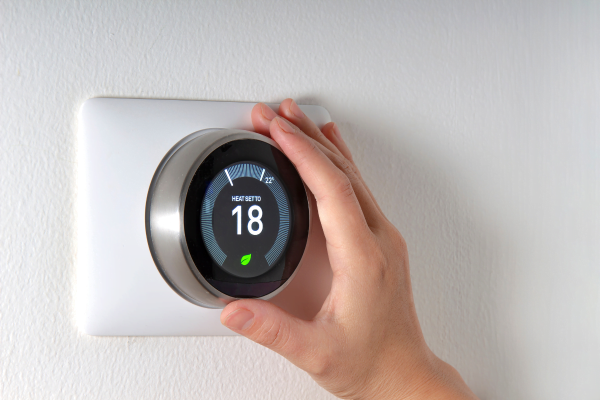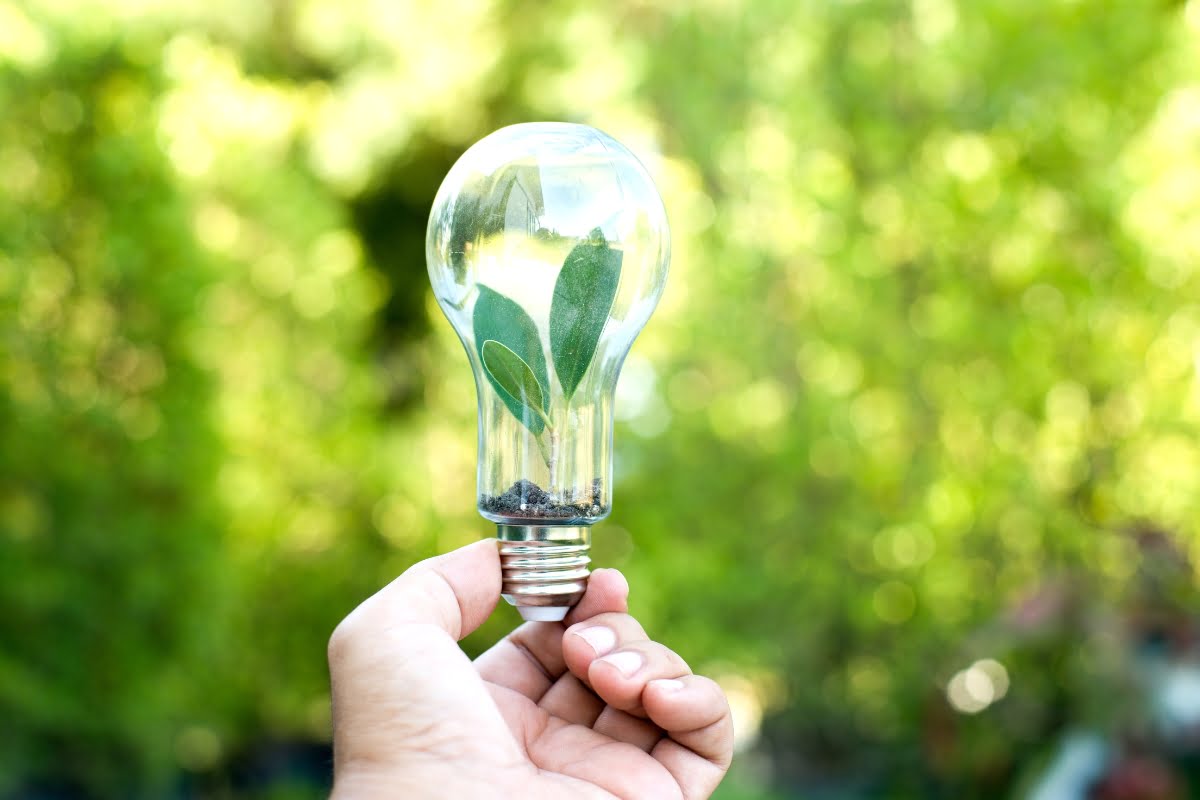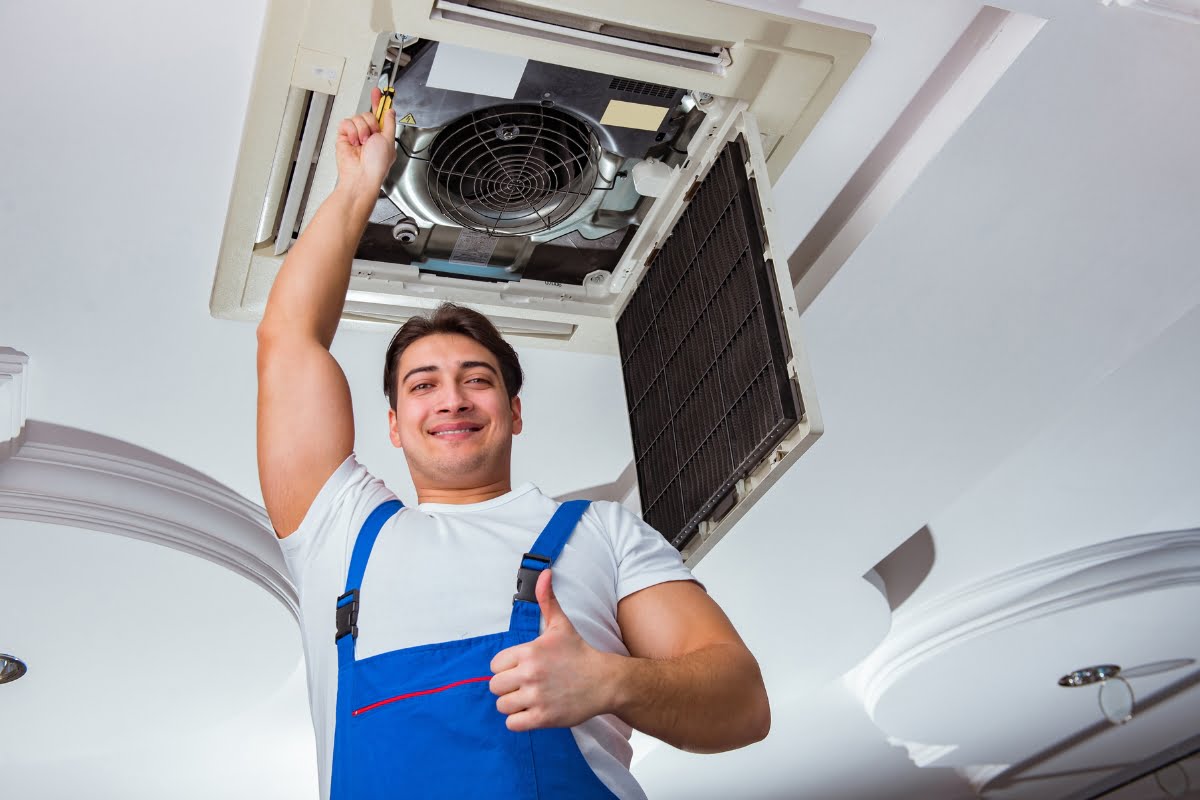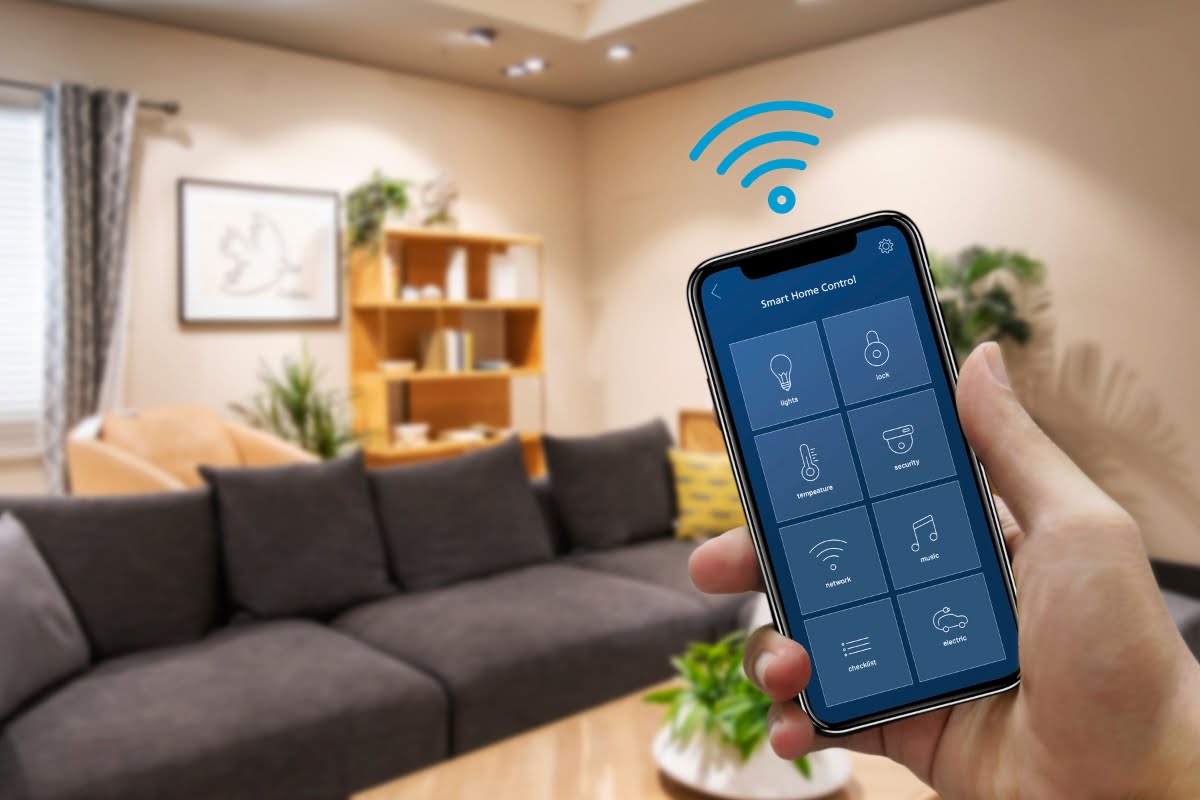Do you cringe every time you receive your monthly utility bills? Are you tired of the ever-increasing costs of heating and cooling your home? If so, you’re not alone. Many homeowners across the country face the same dilemma: how can they reduce their HVAC expenses without sacrificing comfort? The answer lies in improving the energy efficiency of your heating, ventilation, and air conditioning (HVAC) system.
In this ultimate guide to energy efficiency in HVAC, we will delve into the secrets of reducing your bills while maintaining a comfortable indoor environment. From simple DIY tips to advanced professional recommendations, we’ve got you covered. By implementing eco-friendly measures and optimizing your HVAC system’s performance, you can significantly lower your monthly bills and save a substantial amount of money in the long run.
Now get ready to take control of your energy consumption and embark on a journey towards financial savings and sustainability!
Energy Efficiency In HVAC: Save Big, Stay Comfortable!
Upgrading Your Furnace For Improved Energy Efficiency
When it comes to improving energy efficiency in HVAC systems, upgrading your furnace is a crucial step. By investing in a more efficient furnace, you can not only reduce your energy consumption but also lower your utility bills. In this article, we will explore the various ways you can upgrade your furnace to achieve improved energy efficiency.
- Choose a High-Efficiency Furnace: The first step towards upgrading your furnace is to opt for a high-efficiency model. Look for furnaces with a high Annual Fuel Utilization Efficiency (AFUE) rating. The higher the AFUE rating, the more efficient the furnace is. Aim for a furnace with an AFUE rating of 90% or above to maximize energy savings.
- Consider Variable-Speed Motors: Traditional furnaces operate at a single speed, resulting in energy wastage. Upgrading to a furnace with a variable-speed motor can significantly improve energy efficiency. These motors adjust their speed based on the required heating demand, consuming less energy and reducing wear and tear on the system.
- Install a Programmable Thermostat: Pairing your furnace upgrade with a programmable thermostat is a smart move. Programmable thermostats allow you to schedule temperature adjustments based on your daily routine. By lowering the temperature when you’re away or asleep, you can save on energy without compromising comfort.
- Upgrade to a Condensing Furnace: Condensing furnaces are known for their high efficiency. Unlike conventional furnaces, they utilize a second heat exchanger to extract additional heat from the combustion gases. This process increases efficiency and reduces energy waste. Consider upgrading to a condensing furnace for maximum energy savings.
- Proper Insulation and Ductwork: Upgrading your furnace alone won’t yield optimal energy efficiency if your home lacks proper insulation and well-maintained ductwork. Insulating your home effectively traps heat indoors, reducing the workload on your furnace. Similarly, well-sealed ducts prevent air leakage, ensuring that the heated air reaches its intended destination without wastage.
- Regular Maintenance: Even the most efficient furnace needs regular maintenance to operate at its best. Schedule annual inspections and cleanings to ensure your furnace is running optimally. Regular maintenance can identify and address any issues that may be affecting energy efficiency.
Upgrading your furnace is an essential step towards achieving improved energy efficiency in HVAC systems. By doing so, you can significantly reduce your energy consumption and lower your utility bills. Embrace these upgrades and enjoy a more energy-efficient and cost-effective home heating system.
Choosing An Energy-Efficient Air Conditioner For Cost Savings
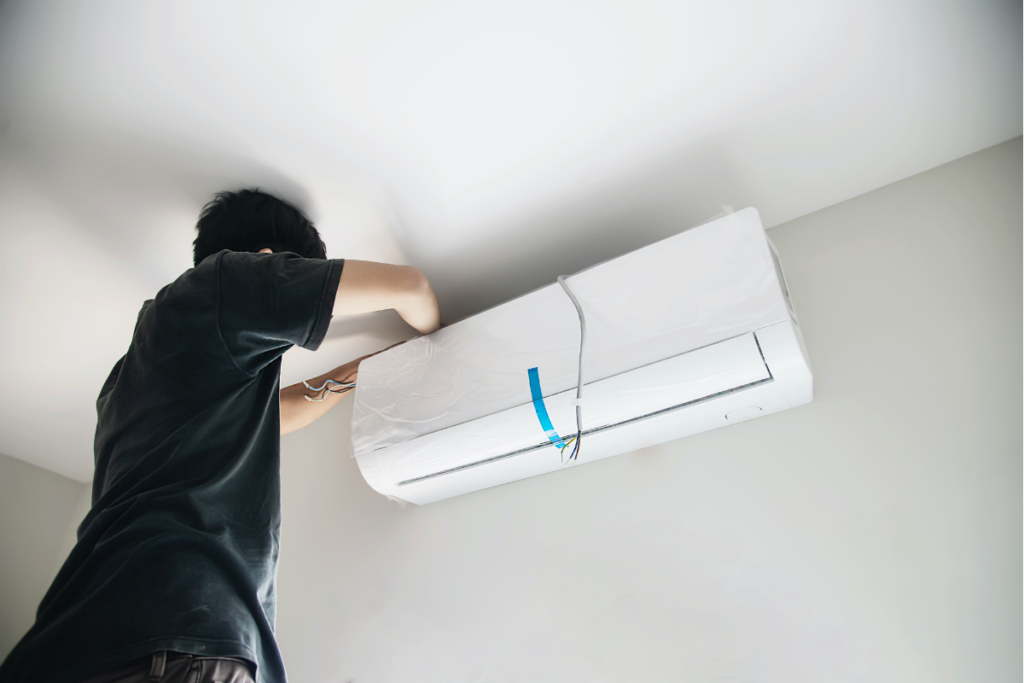
When it comes to choosing an energy-efficient air conditioner for cost savings, there are several factors to consider. By selecting the right unit, you can not only reduce your environmental impact but also save money on your energy bills.
Here are some key points to keep in mind when selecting an energy-efficient air conditioner:
- Energy Star Rating: Look for air conditioners with the Energy Star label. These units have been certified to meet strict energy efficiency guidelines set by the Environmental Protection Agency (EPA). Energy Star-rated air conditioners consume less electricity, resulting in significant cost savings over time.
- SEER Rating: SEER stands for Seasonal Energy Efficiency Ratio and measures the cooling efficiency of an air conditioner over an entire cooling season. The higher the SEER rating, the more energy-efficient the unit is. Aim for a SEER rating of 14 or higher for the best energy savings.
- Size Matters: Choosing the right size air conditioner is crucial for energy efficiency. An oversized unit will cycle on and off frequently, wasting energy, while an undersized unit will struggle to cool your space effectively. Consult with a professional to determine the appropriate size for your specific needs.
- Inverter Technology: Air conditioners with inverter technology adjust their cooling capacity based on the current temperature, providing more precise cooling and reducing energy consumption. This technology allows the unit to run at lower speeds, resulting in quieter operation and increased efficiency.
- Programmable Thermostat Compatibility: Pairing your energy-efficient air conditioner with a programmable thermostat allows you to set different temperature schedules for different times of the day. This feature helps save energy by automatically adjusting the temperature when you’re away or asleep.
- Maintenance and Air Filter: Regular maintenance and clean air filters are essential for the optimal performance of your air conditioner. Dirty filters restrict airflow, making the unit work harder and consume more energy. Be sure to clean or replace filters as recommended by the manufacturer.
- Consider Renewable Energy: If you’re looking to further reduce your carbon footprint, consider pairing your energy-efficient air conditioner with solar panels. Solar power can offset your electricity usage, making your cooling system even more environmentally friendly and cost-effective.
By taking these factors into account, you can make an informed decision when choosing an energy-efficient air conditioner. Remember, the upfront cost of an energy-efficient unit may be higher, but the long-term savings on your energy bills will more than make up for it. Prioritize energy efficiency in HVAC systems and enjoy a comfortable, cost-effective home.
Optimizing Your Thermostat Settings For Energy Efficiency
When it comes to reducing energy consumption and lowering your bills, one of the most effective steps you can take is optimizing your thermostat settings. By making simple adjustments and utilizing the full potential of your HVAC system, you can achieve significant energy efficiency. Here are some key strategies to help you optimize your thermostat settings:
- Programmable Thermostat: Invest in a programmable thermostat if you don’t already have one. This allows you to set different temperature levels for different times of the day, ensuring that your HVAC system runs only when necessary. By programming your thermostat to lower the temperature during times when you’re away or asleep, you can save a substantial amount of energy.
- Set Temperature Wisely: Find the ideal temperature settings for different seasons. During the summer months, it’s recommended to set your thermostat to around 78 degrees Fahrenheit when you’re at home. When you’re away or asleep, consider raising the temperature by a few degrees. In winter, aim for a comfortable temperature of around 68 degrees Fahrenheit during the day, and reduce it at night or when you’re not at home.
- Utilize Energy-Saving Mode: Many modern thermostats offer an energy-saving mode, which helps optimize your energy consumption. When enabled, this mode adjusts the temperature settings to conserve energy without compromising your comfort. Take advantage of this feature to save both energy and money.
- Avoid Constant Adjustments: Constantly adjusting your thermostat can lead to unnecessary energy consumption. Instead, try to find a temperature setting that suits your comfort level and stick to it. Resist the temptation to frequently raise or lower the temperature as it can strain your HVAC system and increase energy usage.
- Take Advantage of Natural Resources: Make use of natural resources to regulate your indoor temperature. During the summer, close curtains or blinds to block out the sun’s heat, and open windows at night to let in cool air. In winter, let the sunlight in during the day to naturally warm up your home. These simple actions can reduce the need for your HVAC system to constantly run.
- Regular Maintenance: Ensure your HVAC system is operating efficiently by scheduling regular maintenance. Clean or replace air filters as needed, check for leaks or blockages in ductwork, and ensure that all components are in good working condition. A well-maintained system operates at peak efficiency and consumes less energy.
- Leverage Technology: Consider upgrading to a smart thermostat that allows you to control your settings remotely. With a smart thermostat, you can adjust temperature settings from anywhere using your smartphone. This feature is particularly useful if your plans change unexpectedly, allowing you to optimize energy consumption even when you’re not at home.
By implementing these strategies and optimizing your thermostat settings, energy efficiency in HVAC systems won’t be impossible to achieve. Not only will this help reduce your energy bills, but it will also contribute to a greener and more sustainable future. Take control of your energy usage and make a positive impact today.
Sealing Air Leaks And Insulating To Prevent Energy Loss
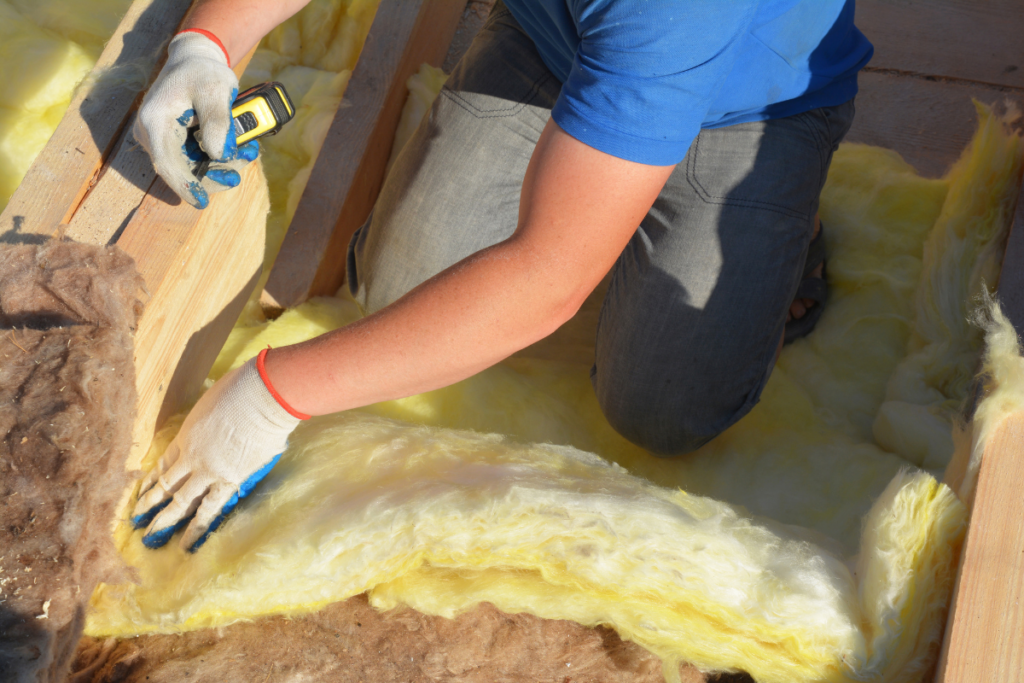
When it comes to improving energy efficiency in HVAC systems, one of the most important steps you can take is sealing air leaks and properly insulating your home or building. These measures not only help reduce energy loss but also have a significant impact on your energy bills. Here are some key strategies to consider:
- Conduct a Thorough Inspection: Start by identifying potential air leaks in your home or building. This includes checking around windows and doors, electrical outlets, attic hatches, and any other areas where there may be gaps or cracks. Use weatherstripping or caulking to seal these leaks, preventing warm or cool air from escaping and external air from seeping in.
- Insulate Your Walls and Attic: Insulation plays a crucial role in maintaining a comfortable indoor temperature. By adding insulation to your walls and attic, you can significantly reduce heat transfer and energy loss. Consider using materials with high R-values, such as fiberglass, cellulose, or spray foam insulation. These materials provide excellent thermal resistance and can effectively prevent energy loss.
- Don’t Forget the Ductwork: In HVAC systems, ducts are responsible for distributing conditioned air throughout the building. However, leaky ductwork can lead to significant energy loss. Inspect your ducts for any gaps, loose connections, or damaged sections. Seal these areas using duct mastic or metal tape to ensure a tight seal and efficient airflow.
- Install Energy-Efficient Windows and Doors: Upgrading to energy-efficient windows and doors can greatly enhance your home’s insulation and reduce drafts. Look for products with low U-values and high Energy Star ratings. These windows and doors are designed to minimize heat transfer and keep your indoor climate comfortable all year round.
- Consider Adding Insulation to Your HVAC System: In addition to insulating your home or building, consider adding insulation to your HVAC system itself. Insulating the pipes, air ducts, and water heaters can prevent heat loss during distribution, resulting in better energy efficiency and reduced energy consumption.
- Regular Maintenance is Key: Lastly, don’t forget the importance of regular maintenance for your HVAC system. Clean or replace air filters regularly to ensure proper airflow and system efficiency. Schedule annual maintenance check-ups with a professional technician to detect and fix any potential issues that could lead to energy loss.
By following these strategies and sealing air leaks while properly insulating your home or building, you can significantly improve the energy efficiency of your HVAC system. Not only will you reduce energy loss, but you’ll also enjoy lower energy bills and a more comfortable indoor environment. So, take the necessary steps today and reap the long-term benefits of energy efficiency in HVAC systems.
Regular Maintenance And Cleaning To Maximize HVAC Efficiency
To ensure optimal performance and energy efficiency in HVAC systems, regular maintenance and cleaning are essential. By following a maintenance schedule and keeping the components clean, you can maximize the efficiency of your heating, ventilation, and air conditioning system. Here are some key steps to consider:
- Replace or Clean Filters: One of the simplest yet most effective maintenance tasks for HVAC systems is regularly replacing or cleaning the filters. Dirty filters restrict airflow, forcing the unit to work harder and consume more energy. By keeping the filters clean, you can maintain efficient airflow and reduce strain on your system.
- Clear Air Vents and Registers: Blocked air vents and registers can disrupt airflow, leading to inefficiencies in your HVAC system. Ensure that all vents and registers are clear of obstructions such as furniture, curtains, or debris. This allows air to flow freely and evenly throughout your home or office.
- Clean the Condenser Unit: The condenser unit, typically located outside, plays a crucial role in cooling your space. Over time, dirt leaves, and debris can accumulate around the condenser coils, impairing heat transfer and reducing efficiency. Regularly clean the condenser unit, removing any debris and ensuring proper airflow.
- Check and Calibrate Thermostat: A properly calibrated thermostat is essential for optimal HVAC performance. Check the accuracy of your thermostat and make any necessary adjustments. A programmable thermostat can also help you optimize energy usage by automatically adjusting temperature settings based on your schedule.
- Inspect Ductwork: Leaky ducts can significantly impact HVAC efficiency, wasting energy and compromising indoor comfort. Inspect your ductwork for any leaks, holes, or loose connections. Sealing or repairing ducts can improve airflow and prevent conditioned air from escaping.
- Schedule Professional Maintenance: While regular DIY maintenance is crucial, it is also important to schedule professional HVAC maintenance at least once a year. A trained technician can thoroughly inspect your system, identify potential issues, and perform any necessary repairs or adjustments. This proactive approach can help prevent major breakdowns and ensure optimal efficiency.
- Consider System Upgrades: If your HVAC system is outdated or inefficient, it may be worth considering an upgrade. Newer models often come with advanced features and technologies that can significantly improve energy efficiency. Consult with an HVAC professional to determine if upgrading your system is a viable option.
By incorporating these regular maintenance and cleaning practices, you can ensure that your HVAC system operates at its full potential, maximizing energy efficiency in HVAC, and ultimately reducing your energy bills. Don’t overlook the importance of routine maintenance as it can save you both money and energy in the long run.
Cutting-Edge HVAC Solutions: Unleash The Power Of Energy Efficiency In HVAC!
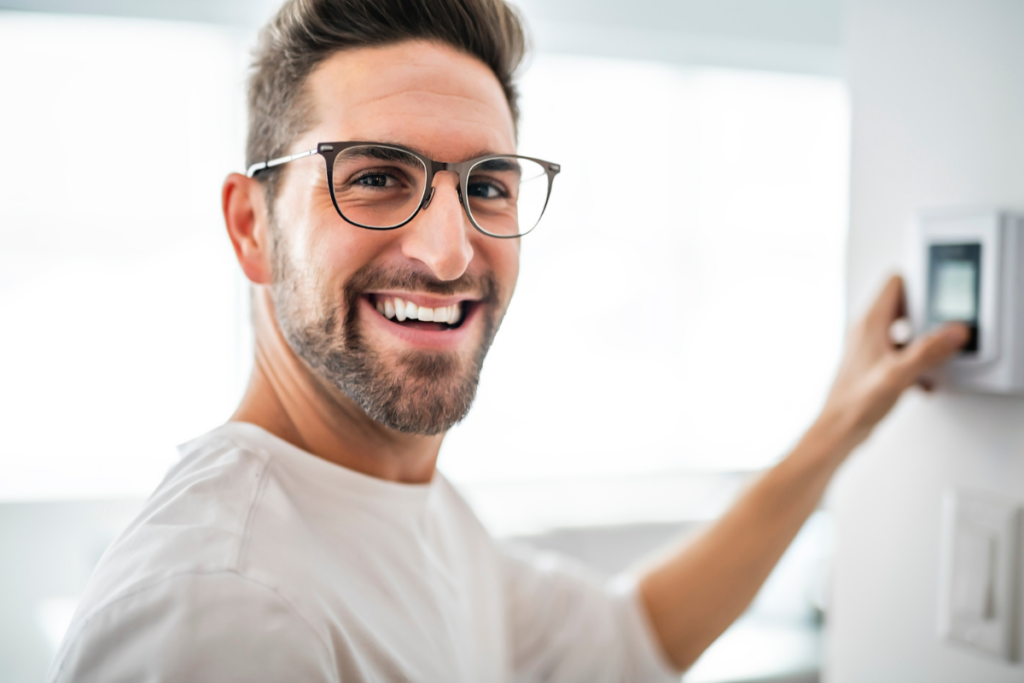
Looking for top-notch HVAC services? Don’t hesitate to contact AD Campbell today!
Experience unrivaled expertise, exceptional service, and timely solutions for all your heating, ventilation, and air conditioning needs. Our team of skilled technicians is ready to provide efficient installations, reliable repairs, and comprehensive maintenance for optimal comfort and energy efficiency in HVAC.
Say goodbye to HVAC troubles and hello to peace of mind. Reach out to AD Campbell now and let us take care of your HVAC system with precision and professionalism. Don’t wait, call us at (404) 882-8226 or visit our website to schedule an appointment. Your comfort is our priority!
